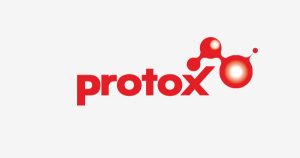
Protox’s botulinum toxin preparation ‘Protoxin Inj. (tentative name)’ is speeding up commercialization. It has applied for approval in Korea and was approved for phase 3 in Russia. The analysis is that Protox’s two-track commercialization strategy at home and abroad is creating synergy.
According to the industry, Protox applied for domestic product approval for Protoxin on December 28 last year.
Protox was conducted in phase 3 at Konkuk University Hospital and four other hospitals in Korea on 274 adults in need of improvement of moderate to severe wrinkles between the eyebrows. As a result, statistical analysis of the primary efficacy evaluation index confirmed the non-inferiority of Protoxin and the control group (Allergan Botox). In addition, product safety and sustainability are additionally secured through extended clinical trials.
Global expansion is also accelerating.
Protox received Phase 3 Clinical Trial (IND) approval from the Russian Ministry of Health and Welfare (Minzdrav) on December 29 last year.
In March of last year, the company signed a contract with Russian company S to proceed with local phase 3 (full burden) and supply Protoxin injection worth 100 billion won for 10 years, and later obtained phase 3 approval through collaboration between the two companies.
We plan to begin phase 3 in Russia starting this year. Based on the results of phase 3, we plan to secure Russian approval and launch the product in Russia and 12 CIS countries.
Protox has also completed preparations for commercialization at home and abroad.
The Hyangnam Pharmaceutical Industrial Complex has a GMP production line that can produce up to 5.4 million vials of botulinum toxin products per year. It is the first bio production plant in Korea that can produce and operate with high quality standards, including installing a German Bausch filling line that meets international standards.
In April 2019, a total project cost of approximately 32 billion won was invested in the Hyangnam Pharmaceutical Complex in Hwaseong City to complete the construction of a 4-story, global standard GMP factory. After securing a pharmaceutical manufacturing license in October of that year, the company received GMP certification in July 2020.
Meanwhile, Protoxin is a botulinum toxin developed by Protoxin. It was developed as a strain that is 99.99% identical to the ATCC3502 species registered in the gene bank operated by the U.S. National Center for Biological Information (NCBI).
It is a finished product that has verified quality control results that meet internationally standardized standards, including non-clinical safety and efficacy data in line with international standards and the potency of the concentrate and finished product. Recently, it was selected as an excellent biosecurity management institution by the Ministry of Trade, Industry and Energy and received the Minister’s Award.
Protox (then a subsidiary of DSK) acquired a 51% stake and management rights in Medica Korea, an unlisted pharmaceutical company, for 38 billion won in 2016. Afterwards, Protox’s largest shareholder was changed to Synergy Group.




No comment yet, add your voice below!